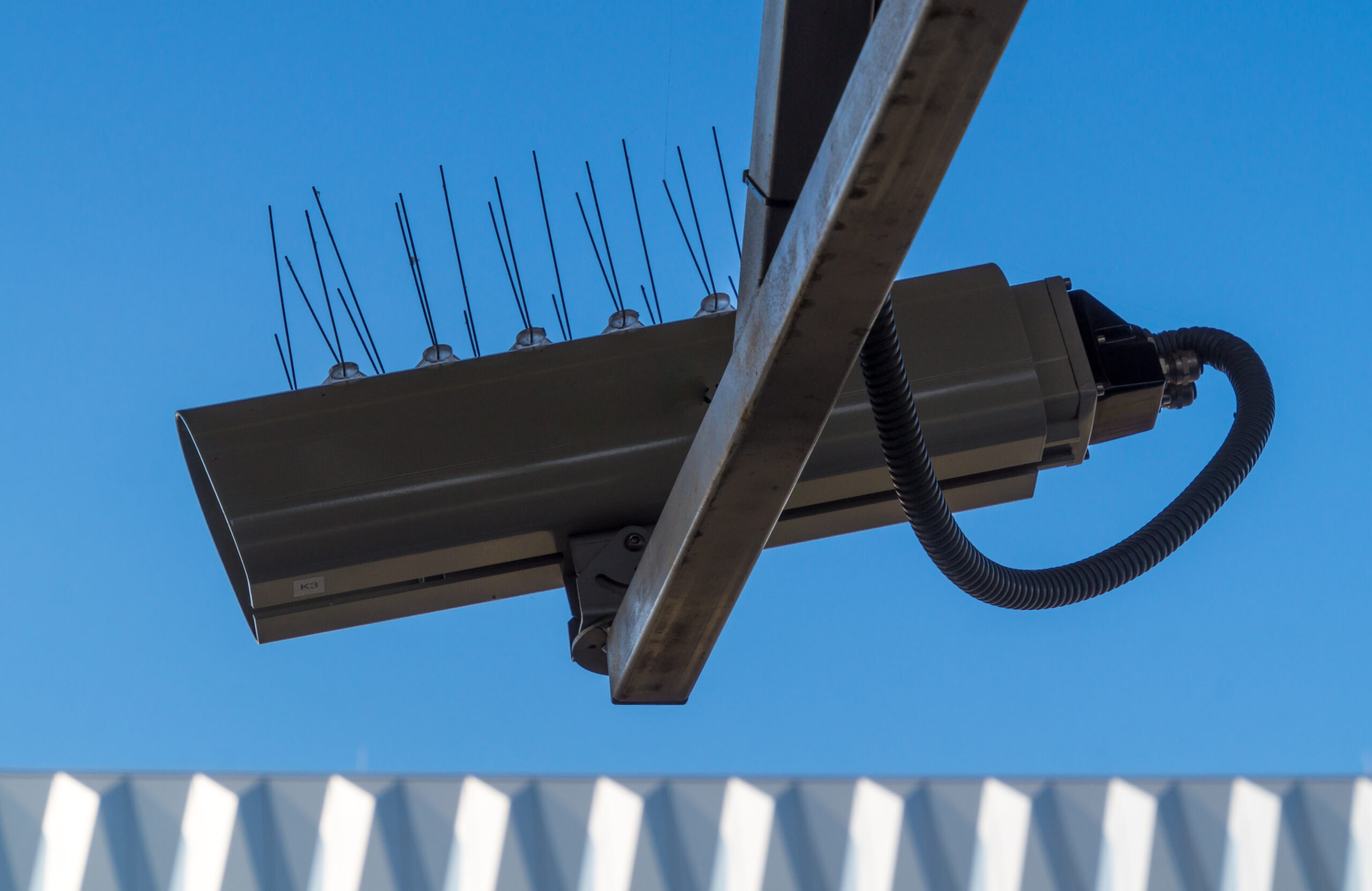Surveillance Made Clear with Wired Signal Reliability

There’s something reassuring about a wired security camera. It’s like knowing the lights will turn on when you flip the switch—reliable, steady, no guessing involved. Unlike their wireless counterparts, wired cameras don’t depend on Wi-Fi signals that can drop out during a storm or when too many devices are connected.
Instead, they use physical cables to transmit video and power, which often means sharper footage and fewer interruptions. For anyone who values consistency (and let’s face it, who doesn’t when it comes to security?), wired systems might just be the answer. Curious about how they stack up? Keep reading.(1)
Key Takeaway
- Wired cameras provide stable connections that are less likely to fail.
- They offer high video quality and record detailed images.
- Wired systems are more secure against hacking attempts.
Advantages of Wired Security Cameras
Credits : Behfor
Stable Connection
Wired security cameras use actual cables, like Ethernet or coaxial, to stay connected to both power and the internet. This makes the connection strong and steady, unlike wireless cameras that rely on Wi-Fi.
At Shielded Residence, we ensure that our wired camera systems maintain this level of stability, offering you a reliable solution for uninterrupted security coverage Walls, long distances, or even too many devices on Wi-Fi can mess with wireless signals, but wired cameras don’t have that problem.
The video feed stays clear and doesn’t cut out, even in big buildings or outdoor spaces. This is super helpful for keeping an eye on things without interruptions. A stable connection means users can act fast if something looks suspicious. It’s all about peace of mind.
Consistent Power Supply
Many wired cameras use something called Power over Ethernet (PoE). Basically, one cable does it all—it powers the camera and sends the video data. This means users don’t have to worry about batteries running out, which can happen with wireless cameras. Wired cameras stay on as long as there’s electricity, making them perfect for round-the-clock security.
No need to remember to recharge or swap out batteries. Plus, PoE makes setup easier since fewer cables are needed. Users can install cameras in more places without extra hassle. Knowing the cameras will always have power makes it easier to trust the system.
Higher Video Quality
Wired cameras usually offer better video quality than wireless ones. The images are sharper, so it’s easier to see details like faces or license plates. This can be really important in places like stores or banks where security is serious business. Clear footage helps users know exactly what happened if there’s an incident.
It’s also super useful for things like police investigations or insurance claims. Wired systems can handle more data, so the video streams stay smooth, even with lots of cameras running. High-quality video makes it easier to rely on the system when it matters most.
Enhanced Security
Wired cameras are harder for hackers to mess with. Since they don’t send signals through the air like wireless ones, it’s tougher for someone to intercept the video feed. To mess with a wired camera, someone would need to physically access it, which is a lot harder to do. This makes wired systems a safer choice for places where privacy is a big deal.
Shielded Residence takes your privacy seriously, with wired systems that minimize the risk of hacking and ensure your video feed remains secure and confidential. Wired connections are also less likely to deal with interference from outside sources. Many wired setups even include extra security features like encrypted data or secure logins. This keeps the video feed private and protected from cyber threats.
Scalability and Coverage
Wired systems are great for covering large areas. They can handle lots of cameras without losing video quality, which is perfect for places like malls or office buildings. Users can monitor multiple spots at once and make sure nothing gets missed. It’s also easy to add more cameras to a wired system as needed.
There’s no worrying about Wi-Fi range or weak signals. Cameras can be placed exactly where they’re needed, covering every entrance and blind spot. Wired systems often work well with other security tools, like alarms or access controls, making them a flexible option for growing needs.
Potential Drawbacks

Even though wired cameras have a lot of good things going for them, there are a few downsides to keep in mind.
- Installation Complexity: Setting up wired cameras isn’t always simple. It means running cables through walls, ceilings, or floors, and that can take a lot of time and effort. For older buildings, this can be even harder because the structure might not make it easy to add new wires.
People need to think about the layout of their space before starting. Careful planning can make things smoother, but sometimes, hiring a professional is the best way to get it done right. Of course, that adds to the cost, which is something to consider.
- Limited Flexibility: Once a wired camera is installed, it’s not so easy to move it around. Unlike wireless cameras, which can be picked up and placed somewhere else, wired ones are pretty much stuck where they are. That’s why it’s important to pick the right spots for them from the beginning.
If you do need to move a camera later, it could mean rerouting cables, which takes time and effort. For people who might want to rearrange things often, this could be a drawback. It’s worth thinking about how much flexibility you’ll really need before choosing a wired system.(2)
Conclusion
Wired cameras, I’d say, are like the dependable old friend who never flakes on you. They’re steady, offering reliable connections and crisp video quality that doesn’t stutter or lag. Sure, setting them up can be a bit of a hassle—drilling holes, running cables, and all that—but once they’re in place, they’re rock solid. No worries about Wi-Fi dropping out or someone hacking into your feed as easily.
If you’re serious about security and don’t mind a little elbow grease upfront, wired cameras are probably the way to go. At Shielded Residence, we’re here to take the hassle out of installation and provide you with dependable wired systems that prioritize your security. With our expertise, you can count on a solution that’s reliable, secure, and built to enhance your peace of mind. Reliable, secure, and built to last.
FAQ
What are the pros and cons of wired CCTV cameras versus wireless systems?
Wired CCTV cameras provide reliable signal strength, consistent power, and higher video quality compared to wireless systems. However, they require ethernet cables, power outlets, and often drilling holes for installation. On the other hand, wireless systems offer ease of installation and flexibility in camera placement but can face signal interference and power outages. Which type suits you depends on your specific security needs.
Why are PoE wired cameras considered the best option for video transmission?
PoE wired cameras transmit data and power through a single cable, simplifying the installation process. This setup ensures uninterrupted surveillance and eliminates the need for separate power sources. PoE systems also deliver high-quality video feeds and are ideal for small businesses and larger properties requiring reliable connection.
Do wired security camera systems provide better night vision and image quality?
Wired cameras generally offer advanced features like color night vision and crystal-clear image quality. Because they rely on continuous power and don’t experience wireless signal loss, they’re excellent for capturing high-resolution video footage. This makes them a cutting-edge choice for comprehensive security.
What is the difference between DVR or NVR systems for wired surveillance?
DVR systems are traditional and work well with analog wired CCTV cameras, while NVR systems are designed for IP cameras and network video recorders. Both offer central hub storage options for recorded videos, but NVR systems typically support higher resolution and advanced video analytics.
Are wired security systems better for areas with frequent power outages?
Wired systems offer constant power when connected to a stable external power supply, but power outages can disrupt their functionality. To counter this, a battery backup or additional power supply can be used to ensure continuous power. This makes them more reliable for uninterrupted video streaming in high-security areas.
References
- https://ajax.systems/blog/types-of-surveillance-cameras/#:~:text=Reliability,for%20reliable%20and%20uninterrupted%20surveillance.
- https://www.security.org/home-security-systems/best/wired/